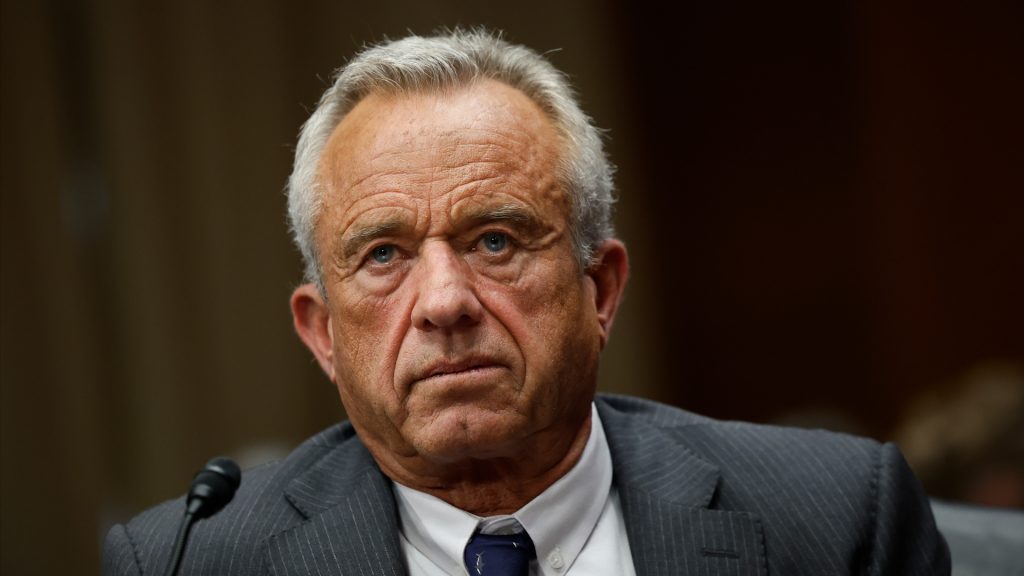Government will know what causes autism by September: RFK Jr.
Ella Greene April 11, 2025 0
- Health and Human Services Secretary Robert F. Kennedy Jr. launched a global autism research initiative involving hundreds of scientists. He announced the effort at a cabinet meeting and set a goal of identifying autism’s root causes by September 2025.
- Autism experts warned the plan’s timeline is unrealistic and raised concerns about Kennedy’s past vaccine claims.
- Lawmakers and advocates criticized the study’s leadership and language, calling it stigmatizing and potentially harmful to public health efforts.
Full Story
U.S. Health and Human Services Secretary Robert F. Kennedy Jr. said the agency will lead a global research initiative to investigate the causes of autism spectrum disorder. The announcement came during a cabinet meeting Thursday, April 10, with President Donald Trump.
According to Kennedy, the effort involves hundreds of scientists and aims to identify environmental contributors to autism by September.
Citing rising autism diagnoses, Kennedy pointed to CDC data showing that prevalence has increased from around 1 in 150 children in 2000 to an estimated 1 in 36 today. He said the goal is to identify and reduce exposures potentially linked to the trend. The CDC has not endorsed a specific environmental cause.
Concerns from scientists and advocacy groups
Medical experts and autism research advocates have raised questions about the project’s design, especially the timeline.
Autism is associated with a range of genetic and developmental factors, and researchers said drawing conclusions within five months may not be feasible. Groups, including the Autistic Self Advocacy Network and the Autism Society of America, have described the framing of the study as misleading and potentially harmful to public understanding.
Some critics warned that the initiative may revisit theories previously rejected by peer-reviewed research. According to the National Institutes of Health and other leading health agencies, studies over the past two decades have found no credible link between vaccines and autism.
Background and controversy
Kennedy’s previous statements on vaccine safety have drawn scrutiny. He has promoted a now-debunked connection between childhood vaccines and autism, a claim widely rejected by public health authorities.
Earlier this year, he directed the CDC to revisit that topic despite existing agency research showing no association.
The department has also brought on David Geier, a figure known for past efforts to tie vaccines to autism. State medical boards, including Maryland’s, have disciplined Geier for practicing medicine without a license. His appointment has prompted additional questions about the study’s direction and credibility.
White House backing and medical pushback
Trump expressed support for the initiative during the cabinet meeting, suggesting autism might be linked to artificial substances or medical treatments. He said the results could draw significant public attention and possibly lead to changes in children’s consumption or exposure.
Federal officials have described the study as a response to public concern over increasing autism rates. However, many researchers — including those affiliated with NIH and academic institutions — attribute the rise to better diagnostic tools, broader screening criteria and earlier identification.
Questions about capacity and intent
Operational challenges have also been raised. HHS recently reduced staff by 25%, prompting concerns about its ability to coordinate a complex, international research project. Some experts have also noted that strained ties with global health organizations could limit the department’s ability to collaborate with international partners.
House Democrats have opened an inquiry into Geier’s role in the study. Meanwhile, disability rights advocates argued that the language used by officials risks reinforcing stigma and may distract from efforts to expand support and inclusion for autistic individuals.
Ella Rae Greene, Editor In Chief
Ella Greene
Ella and the staff at Clear Media Project (CMP) curate these articles.
Unless otherwise noted CMP does not write these articles.
The views, thoughts, and opinions expressed in the articles published on this blog belong solely to the original authors and do not necessarily reflect the views of the blog owner. The blog owner does not claim ownership of the content shared by contributors and is not responsible for any inaccuracies, errors, or omissions.
All rights and credits goes to its rightful owners. No Copyright Infringement is intended. If you believe any content infringes on your rights, please contact us for review and potential removal.





